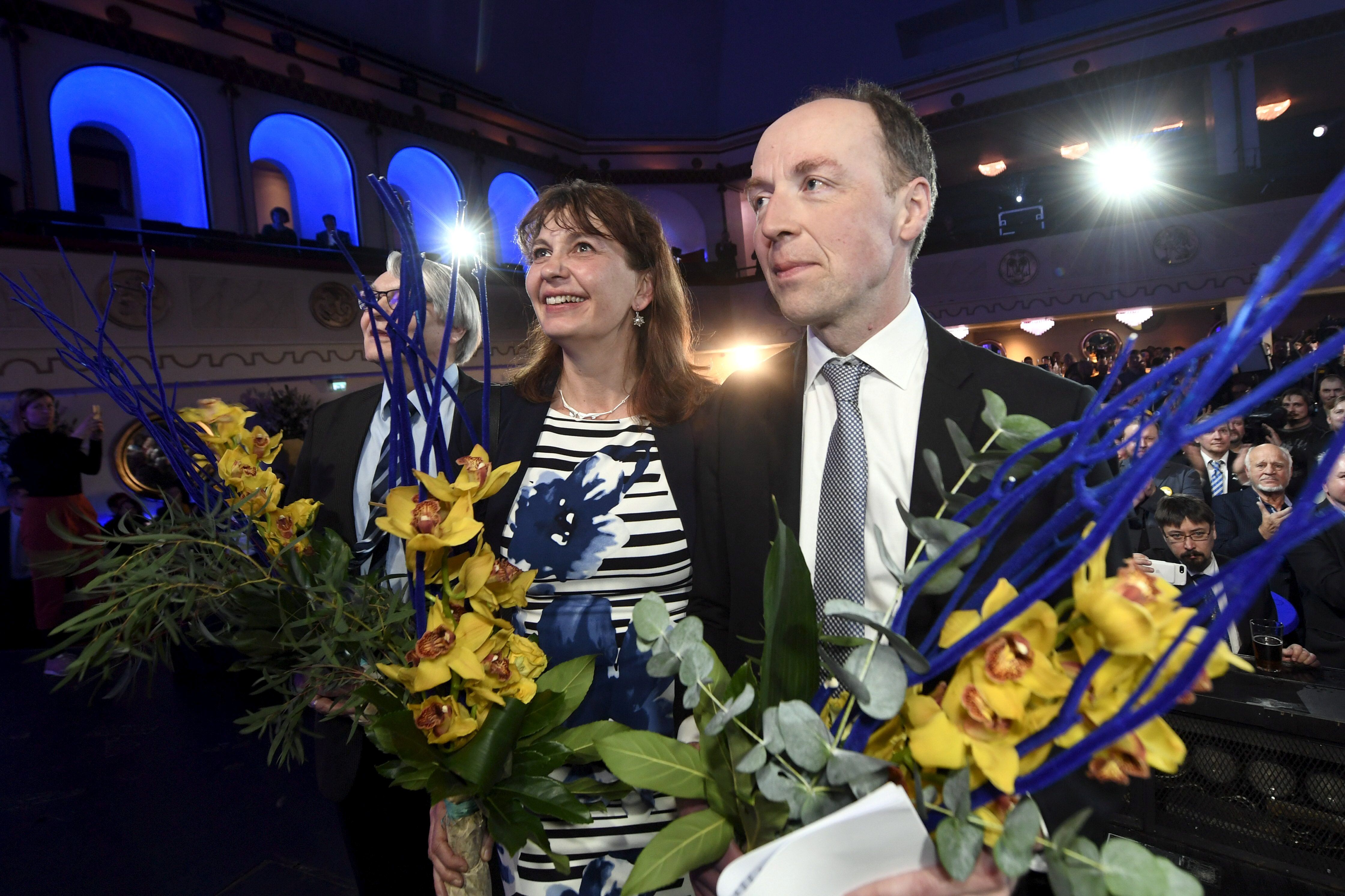April 15, 2019
Anti-immigrant rhetoric has been a political winner for populist parties across Europe in recent years, but as the flow of new asylum-seekers wanes, Finland's main right-wing outfit found a new way to win votes over the weekend.
In a national election defined largely by a polarizing debate over what to do about climate change, the euroskeptic nationalists of the Finns Party came in second place, just a hair behind the center-left Social Democrats. And they did it by taking square aim at climate policy.
Finland, of course, is on the front lines of climate change. A third of its territory lies above the Arctic Circle, where rapidly melting ice caps are transforming the environment both locally and globally.
But Finland is already one of the world's most environmentally-friendly countries, and the Finns party's message on this subject was simple: we've done enough.
Their beef isn't with climate science itself, but with policy proposals like higher fuel taxes, electric vehicle requirements, and restrictions on meat consumption that impose short-term pain for uncertain longer-term gains.
The Finns Party says these measures disproportionately hurt working people, particularly their supporters in the countryside, and scare away foreign companies that may choose to invest in other countries that impose fewer environmental restrictions.
What's more, Finns asks, why should a small country like Finland make more sacrifices to help the planet when progress depends almost entirely on actions taken by bigger polluters like China, the US, and India?
It's unclear whether the Finns Party will have a role in the next Finnish government, but the party's strong showing has drawn notice from other populist parties across the continent, which are hoping to make big gains in elections to the European Parliament next month.
The upshot: Several years on from the peak of the migrant crisis, Europe's populist parties need new campaign issues that resonate with their voters. Climate policy – which often imposes clear economic and lifestyle sacrifices while promising fewer tangible benefits – may be the next ripe issue for anti-establishment politicians across Europe.
More For You
As expected, the Supreme Court struck down the bulk of Donald Trump's sweeping “Liberation Day” tariffs as illegal … and almost nothing changed.
Most Popular
What's Good Wednesdays
What’s Good Wednesdays™, February 25, 2026
Sponsored posts
Small businesses at a crossroads
Chris, an Army veteran, started his Walmart journey over 25 years ago as an hourly associate. Today, he manages a Distribution Center and serves as a mentor, helping others navigate their own paths to success. At Walmart, associates have the opportunity to take advantage of the pathways, perks, and pay that come with the job — with or without a college degree. In fact, more than 75% of Walmart management started as hourly associates. Learn more about how over 130,000 associates were promoted into roles of greater responsibility and higher pay in FY25.
Ukraine's President Volodymyr Zelenskiy, Finland's President Alexander Stubb, Estonia’s Prime Minister, President of the European Commission Ursula von der Leyen and other European leaders visit memorial to fallen Ukrainian defenders at the Independent Square on the fourth anniversary of Russia's full-scale invasion, in Kyiv, Ukraine February 24, 2026.
Ukrainian Presidential Press Service/Handout via REUTERS
Somewhere in the Donbas region, Ukrainian soldier Artem Bondarenko says he hasn’t slept through the night in months as he defends Eastern Ukraine.
- YouTube
In the latest episode of Vladimir Putin and Xi Jinping's hit wellness podcast This Authoritarian Life, we learn how positive communication patterns can break negative cycles in our relationships -- especially our relationships with Iran, Syria, Venezuela, and Cuba. #PUPPETREGIME
© 2025 GZERO Media. All Rights Reserved | A Eurasia Group media company.
